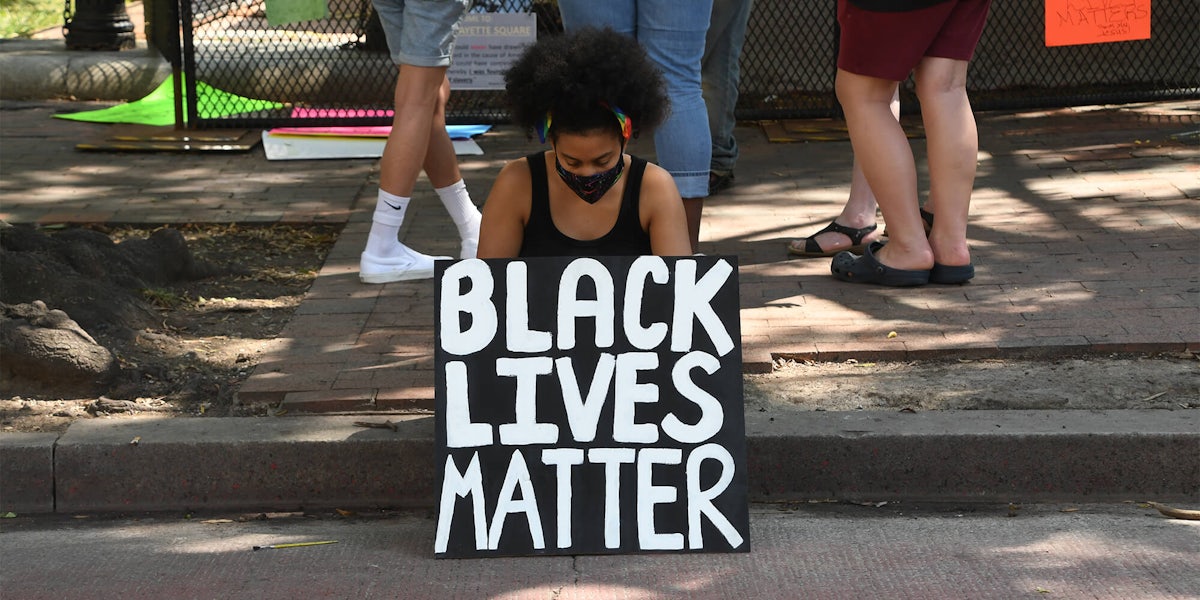Opinion
On May 5, a video of the fatal shooting of Ahmaud Arbery emerged online, generating public outrage for another case of an unarmed Black person being killed by a white man. By the next day, celebrities like Ava DuVernay, Taylor Swift, Gabrielle Union, and Kim Kardashian West took to social media to express their frustration and plead for justice.
On March 13, Breonna Taylor, a Black woman, was shot eight times by Louisville police during a no-knock search warrant raid at the wrong house. By May 14, the news had reached social media, resulting in another public outcry for another life lost to police brutality.
Then, on May 25, the death of George Floyd, a Black man who was complying with officers during an arrest and pleading for his life, was filmed and circulated the internet, resulting not only in public outrage online but widespread protests on the ground and numerous calls to action.
The mass spread of news, petitions, fundraisers, and infographics isn’t by accident. It’s a social media takeover that could only exist during a time when there is nothing else to promote or showcase. While COVID-19 restrictions have literally closed our doors, figuratively, they’ve opened the door to a movement that has been brewing for years.
Increased awareness
Police brutality toward Black people in the United States is not a new tale, but it is getting new attention. As a deadly virus forced everyone to stay indoors, smartphone screen time increased and TikTok dances seized the moment—as millions all over the world adjusted to a new normal at home. For a while, the only news to consume was COVID-19-related.
We watched businesses close, restaurants go curbside, travel restrictions cancel vacations, and events of all kinds get postponed. Nearly 47 million Americans were laid off from their jobs, while those who were non-essential workers and still employed were mandated to work from home. Life as we knew it took a pause.
During the early months of stay-at-home orders, an obvious silver lining of the pandemic became the drop in CO2 emissions, being the largest decline since World War II. More recently, another silver lining has been increased social media awareness about the injustices Black people face in America.
Prior to the coronavirus pandemic, social media was used as a tool to showcase racism and discrimination, but the reach rarely extended beyond Black communities. And even then, the news was presented as a partisan controversy: During the Ferguson protests of 2014, Black Lives Matter was portrayed as a “hate group” on cable news.
Now, with a lack of entertainment options and new content, ignoring an issue that doesn’t directly affect you is no longer as easy. There isn’t an Instagram story of your friend who is partying in Cabo to look at; there isn’t a clip of your favorite celebrity at a music festival; there isn’t even a snapshot of someone’s five-star meal at a dine-in restaurant to thirst over. And when there’s nothing lighthearted going on, and nothing to switch over to, social issues take prevalence.
Maintaining the momentum
From worldwide protests for three weeks straight to numerous petitions and fundraisers, the Black Lives Matter movement is finally getting long-overdue, collective attention. Celebrities who were once silent on social media about politics and social issues are now dedicating their platforms to raising awareness.
Countries that previously turned a blind eye to racism in America are now leading their own demonstrations and individuals who might have formerly ignored the problems surrounding race in their own country are now organizing to dismantle an unjust system. Not since the civil rights movement has such momentum transpired across the world at once.
As states slowly begin to reopen and stay-at-home orders loosen, it’s safe to assume social media will soon be occupied by our previous day-to-day festivities. Just last week, coronavirus coverage began leading morning shows like Today again, suggesting that the national TV media will re-sharpen its focus there.
The energy toward disassembling police brutality and racism could very much subside in the process.
Videos of white women racially profiling Black men for no legitimate reason and clips of racist insults being used unfortunately will continue to surface, but the view count and spread could likely see a plunge if non-Black people do not choose to be as active tomorrow as they are today.
Racism isn’t going away, but our restrictions and stay-at-home orders will soon. Here’s hoping people remember and actively continue to dismantle injustice, case-by-case, even when Coachella and the NBA return.
